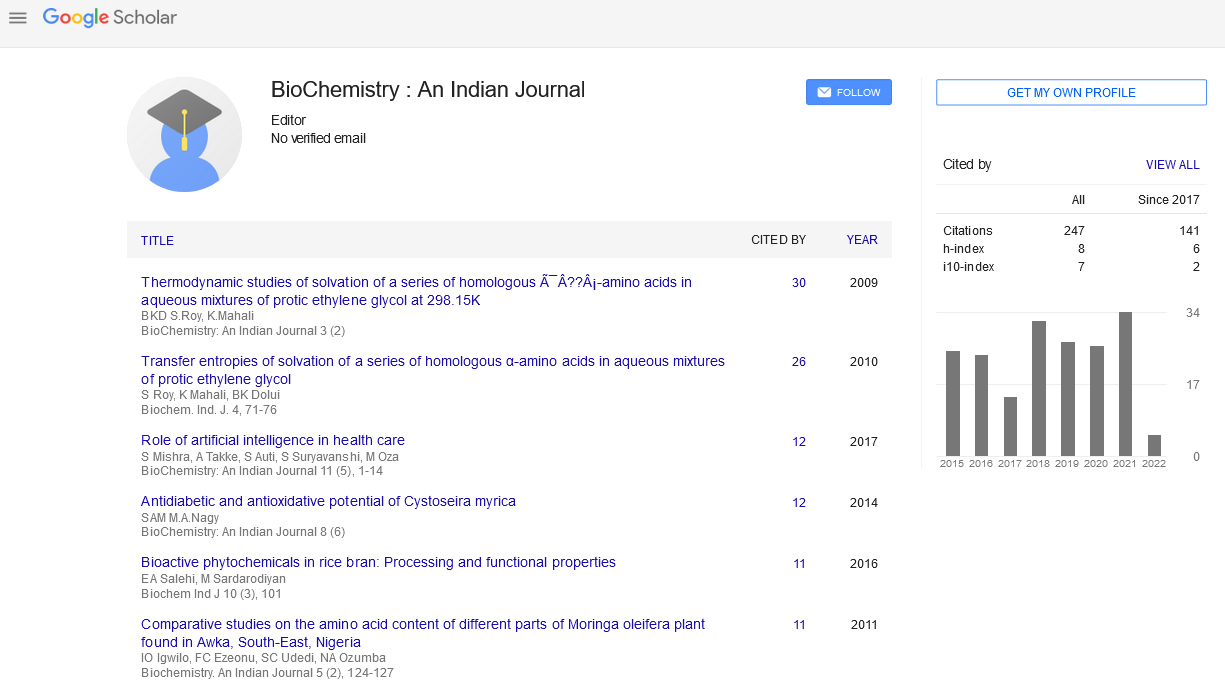Abstract
In Silico Characterization of Ehlers-Danlos Syndrome Causing Human Collagen Proteins
Author(s): K.Sivakumar, S.Balaji, Ganga RadhakrishnanBioinformatic tools and computational methods have been used to analyze, characterize and to provide more detailed definition of some selected Ehlers-Danlos syndrome (EDS) causing human collagen proteins retrieved from NCBI’s Entrez Protein database. Defect in collagen causes various syndromes including Ehlers-Danlos syndrome (EDS). Here, EDS causing 11 human collagen proteins retrieved from NCBI’s Entrez Protein database are characterized by using computational methods to give detailed definition of EDS causing collagen proteins. Primary structure analysis shows that all the eleven proteins are rich in glycine (23% – 34%) and proline (17% - 23%) amino acids. The computed pI values of EDS associated collagens reveals that the proteins NP_000080.2, AAB59374.1, AAB59383.1, and AAA52041.1 are basic, the protein AAB35615.1 is strongly basic (pI>7), and the proteins NP_000081.1, NP_000079.1, NP_000384.1 and NP_056534.1 are acidic, the protein NP_000084.2 is strongly acidic (pI<7) in character. The protein AAD13937.1 is classified as neutral (pI≅7) and it has no any acidic or basic amino acids. The low aliphatic index (0 – 52) infers that the collagen proteins may become unstable at high temperature. Secondary structure analysis shows that all the 11 collagen proteins are found to be of predominant coil structure content (>79%) and the secondary structure content prediction server (SSCP) classifies all the proteins as irregular secondary structure class. The irregular structure of collagen proteins is due to the rich content of more flexible glycine and hydrophobic proline amino acids. SOSUI server identified one transmembrane region in alpha 2 type V collagen preproprotein (NP_000384.1) and classifies all the other collagens as soluble proteins. The average molecular weight of EDS causing collagen proteins calculated is 105992 Da.

